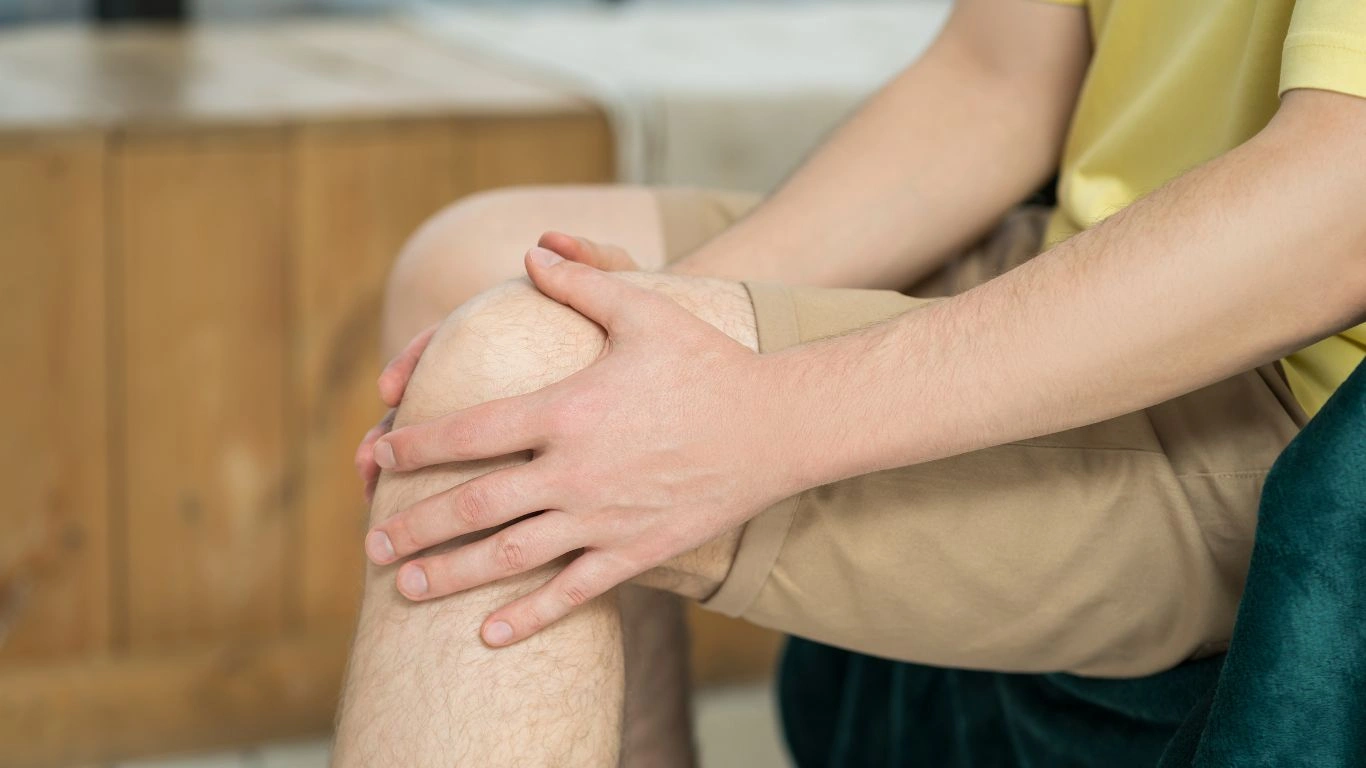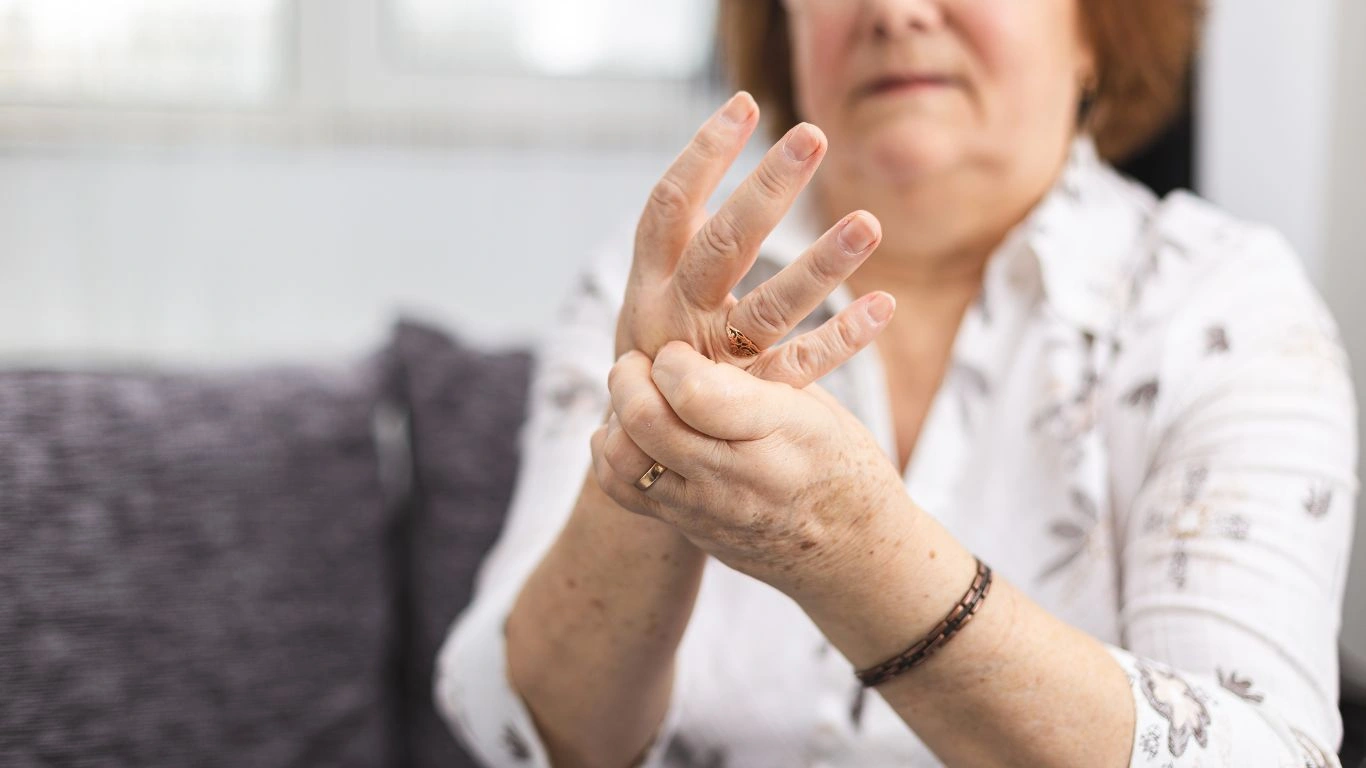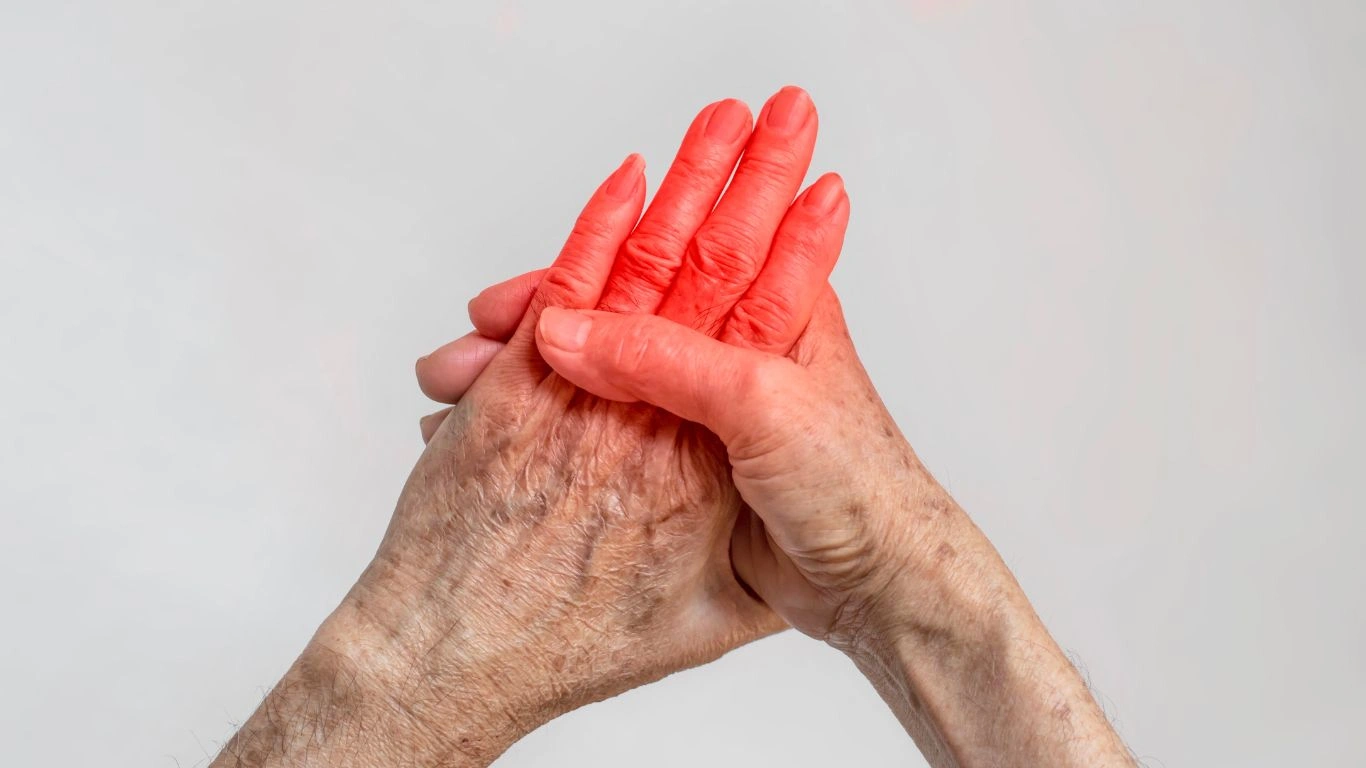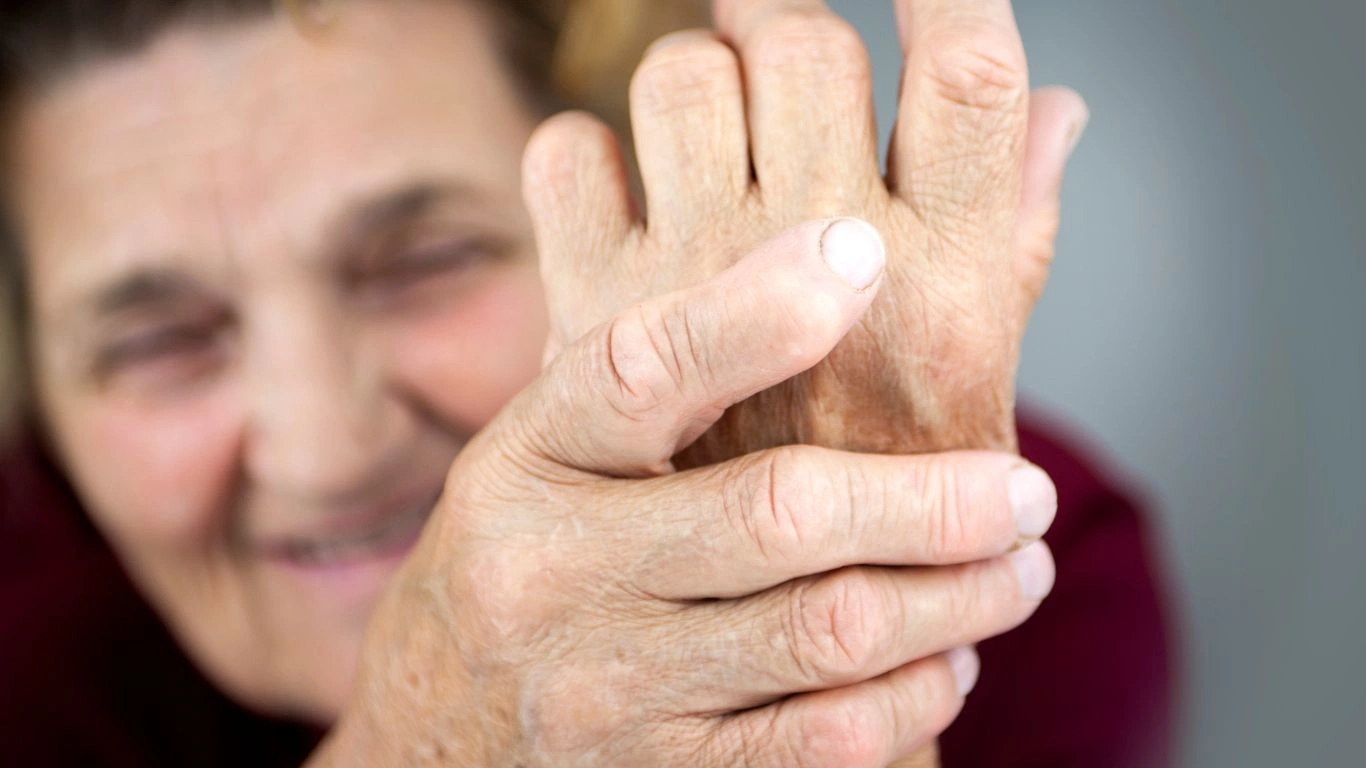The Power of Hydration for Rheumatoid Arthritis Relief and Joint Health
As someone who’s spent years working closely with individuals diagnosed with rheumatoid arthritis (RA), I’ve seen firsthand just how much of an impact this condition can have on daily life. RA is a chronic autoimmune disease that primarily targets the joints, causing inflammation, pain, and stiffness. But what if I told you that something as simple as hydration could play a crucial role in managing and even improving the health of your joints? Hydration is often overlooked in the conversation about RA, but it’s one of the easiest ways to support your body’s natural functions and help protect those precious joints.
Understanding Rheumatoid Arthritis and Its Impact on the Joints

Rheumatoid arthritis isn’t just about joint pain—it’s an autoimmune condition where the body mistakenly attacks its own tissues, especially in the joints. This often results in chronic inflammation that leads to swelling, stiffness, and long-term damage. While there’s no definitive cure for RA, treatment options aim to manage symptoms and improve quality of life. As an expert, I’ve seen patients find relief through a combination of medications, physical therapy, lifestyle changes, and diet. But hydration? That’s one of the unsung heroes that’s often left out of the discussion.
Why Hydration is So Important for Joint Health
Our bodies are made up of approximately 60% water. That water isn’t just sitting around; it’s involved in nearly every biological process, including the lubrication and maintenance of our joints. Think about your joints like a hinge on a door—without proper lubrication, that door would squeak, stick, and eventually wear out. Well, the same principle applies to your joints. When you’re dehydrated, the cartilage in your joints doesn’t get the hydration it needs to stay lubricated and flexible. This can lead to more friction, pain, and increased inflammation.
Hydration is also essential for the production of synovial fluid, the thick, slippery substance that helps joints move smoothly. Without enough water, this fluid can become thicker and less effective, making movements feel stiff and painful. When you’re living with rheumatoid arthritis, you’re already dealing with inflammation, so keeping your joints hydrated is crucial for minimizing extra friction and discomfort.
The Connection Between Dehydration and Increased Inflammation
Now, here’s where things get interesting. Dehydration doesn’t just impact the mechanical function of your joints—it can also exacerbate inflammation, which is at the heart of RA. When your body is low on water, it can trigger an inflammatory response, even in areas that aren’t affected by rheumatoid arthritis. This is why staying hydrated is essential not just for the comfort of your joints but also for helping to manage inflammation levels throughout your body.

In my experience, when individuals with RA take hydration seriously, they often notice less joint pain and stiffness, especially when combined with other therapeutic strategies. I can’t tell you how many patients I’ve worked with who swear by the power of water for keeping their joints feeling more mobile and less inflamed. It’s like giving your body the right fuel to keep everything running smoothly.
How Much Water Should You Be Drinking?
The right amount of water varies from person to person, depending on factors like age, activity level, and overall health. However, a general guideline is to aim for about 8 cups (64 ounces) of water a day. If you have rheumatoid arthritis, you may need a bit more to compensate for the additional strain your joints are under. I’ve found that staying on top of hydration throughout the day—rather than drinking it all at once—is a much more effective way to keep your joints lubricated and inflammation levels in check.
Now, before you go chugging water all day long, keep in mind that hydration isn’t just about drinking water. Foods with high water content, such as fruits and vegetables (think cucumbers, watermelon, and strawberries), can also contribute to your daily fluid intake. You don’t have to rely on plain water alone to keep your joints feeling their best.
Signs You Might Be Dehydrated
When you’re focused on managing a condition like rheumatoid arthritis, it can be easy to overlook the signs of dehydration. However, recognizing the early warning signs is key to preventing joint issues from worsening. Some of the symptoms of dehydration to watch for include:
- Dry mouth and throat
- Fatigue and lack of energy
- Headaches
- Dark yellow urine
- Dry skin or fewer sweat droplets when active
- Increased joint pain or stiffness
If you notice any of these signs, it’s time to increase your water intake. The sooner you can rehydrate, the better it will be for your joints and overall health.
Other Hydrating Tips for People with RA
Along with drinking more water, there are a few other strategies you can use to stay hydrated and support your joints:
- Avoid excessive caffeine: Drinks like coffee and soda can dehydrate you if consumed in excess, so try to balance them with water or herbal teas.
- Incorporate electrolytes: Sometimes, it’s not just about water; your body also needs electrolytes like potassium and sodium. Consider adding coconut water or sports drinks in moderation to your hydration plan.
- Hydrating foods: Eating foods like cucumber, celery, and oranges can help maintain hydration levels and provide extra nutrients to support joint health.
The Role of Hydration in RA Treatment Plans
Incorporating proper hydration into your daily routine doesn’t replace the need for RA-specific treatments like medications and physical therapy. However, it’s an important adjunct that can improve the overall effectiveness of those treatments. Staying hydrated can help your body better absorb the nutrients it needs to repair joint tissues, reduce inflammation, and maintain flexibility. It’s one of the simplest, yet most effective ways to support your joints without adding any extra strain on your body.

Remember, hydration is just one piece of the puzzle when it comes to managing rheumatoid arthritis. By staying hydrated, you’re giving your joints the lubrication they need to function better, reduce inflammation, and ultimately improve your quality of life. So, if you haven’t been prioritizing hydration as part of your RA management plan, now is the perfect time to start!
Hydration and Its Role in Managing RA Flare-ups
One of the biggest challenges for people with rheumatoid arthritis (RA) is dealing with flare-ups—those unpredictable moments when joint pain, stiffness, and inflammation intensify. As someone who’s worked closely with RA patients, I can tell you that hydration plays an unexpected but important role in managing these flare-ups. I’ve seen patients who started drinking more water and noticed that their flare-ups were less severe or didn’t last as long.
But why does hydration help in these flare-ups? Well, during a flare, your body’s inflammatory processes are heightened, and this requires more fluid to help flush out waste products and support immune function. Dehydration can worsen these inflammatory responses, making the pain and stiffness feel more intense. When you’re properly hydrated, your body is better able to manage and reduce this inflammation. Think of it as your body’s natural “cooling system” to help put out the fire that is inflammation.

In my practice, I recommend that patients increase their water intake, especially during periods of flare-ups. While hydration isn’t a cure-all, it can certainly make a significant difference in reducing the severity of symptoms. The next time you feel the early signs of a flare coming on, try focusing on staying hydrated—along with other treatment methods—and see if it helps you get through the tough times a bit easier.
Hydration’s Effect on Joint Flexibility
Let’s talk about joint flexibility for a moment. For those with RA, morning stiffness is a common issue. You wake up, and it feels like your joints are stuck in place. This can be frustrating and even discouraging. But hydration can have a direct impact on how flexible your joints feel throughout the day. Our joints rely on synovial fluid for lubrication, and when you’re dehydrated, the production of this fluid can decrease. This can make your joints feel tight and uncooperative.
On the flip side, when you’re well-hydrated, your body produces the right amount of synovial fluid to keep things running smoothly. It’s like giving your joints the oil they need to move freely. I’ve heard patients share that, when they’ve focused on hydration, they experience less stiffness, and they’re able to go through their daily routines with more ease. Hydration helps prevent that “stiff-as-a-board” feeling that can set in when you wake up, and I truly believe that it can make mornings feel a lot more manageable for RA sufferers.
How Proper Hydration Supports Overall Health in RA
It’s easy to think of hydration solely as a way to manage joint health, but the truth is, proper hydration supports the entire body, especially when you’re managing a chronic condition like RA. As I’ve worked with RA patients, I’ve seen how staying hydrated can positively impact other aspects of health, like energy levels, digestion, and immune function. Let’s break down some of the other surprising benefits of hydration that you might not have considered:
- Boosts Energy Levels: Chronic fatigue is a common issue for those with RA. Dehydration can make it worse, leaving you feeling sluggish and worn out. Drinking enough water can help improve your energy levels and keep you feeling more alert and focused throughout the day.
- Improves Digestion: Hydration plays a key role in your digestive health. When you’re hydrated, your body can break down food more efficiently, which can help prevent the bloating and discomfort that some RA patients experience due to inflammation in the gut.
- Supports Immune Function: Since RA is an autoimmune disease, supporting your immune system is crucial. Staying hydrated helps your immune system function properly, as it aids in the transport of nutrients and removal of waste products that could otherwise lead to increased inflammation.
Incorporating hydration into your daily routine isn’t just about joint pain management—it’s about supporting your overall health and well-being. I’ve seen patients who struggled with fatigue and digestive issues experience noticeable improvements simply by drinking more water throughout the day. These improvements might not always be immediate, but over time, proper hydration helps your body stay in a state of balance, making it easier to manage RA symptoms effectively.
Can Hydration Alone Manage RA Symptoms?
Now, I need to be honest with you—hydration, while incredibly important, isn’t going to be the magic bullet that completely manages your rheumatoid arthritis. I wish it were that easy! RA is a multifaceted condition that requires a comprehensive treatment approach, including medication, physical therapy, diet changes, and, of course, hydration. It’s all about creating a holistic plan that works for you.
However, that doesn’t mean hydration should be disregarded as a tool for managing RA symptoms. When combined with other treatment strategies, hydration can significantly improve your comfort level, reduce flare-up frequency, and help you maintain flexibility. I’ve had patients tell me that once they incorporated more water into their daily routine, they noticed less pain, better sleep, and even improved mobility. While hydration alone won’t cure RA, it’s one of the easiest and most beneficial changes you can make to support your body as it fights inflammation.
Why You Should Stay Consistent with Hydration
Staying consistent with hydration can be challenging, especially if you’re not used to drinking a lot of water. Life gets busy, and sometimes it’s easy to forget to hydrate. But in my experience, making hydration a non-negotiable part of your daily routine can pay off in spades when it comes to managing RA.

It’s important to make hydration a habit—something that’s as automatic as brushing your teeth. You don’t need to obsess over it, but by setting regular reminders or incorporating hydration into your meals and snacks, you’ll notice the benefits over time. Even small changes, like starting your day with a glass of water or carrying a water bottle with you, can make a huge difference in how you feel.
In conclusion, while hydration isn’t a cure for rheumatoid arthritis, it’s one of the easiest and most effective tools in your arsenal for managing symptoms and improving joint health. By staying hydrated, you’re giving your body the best possible chance to keep inflammation in check and support your joints in the long run. And hey, if it’s a simple change that makes a big difference, why not give it a try?

Hydration as Part of a Holistic RA Management Plan
So far, we’ve covered how hydration plays a significant role in managing rheumatoid arthritis (RA) flare-ups, joint flexibility, and overall well-being. But here’s the thing: hydration is just one piece of the puzzle when it comes to managing RA. As someone who has worked with many individuals living with RA, I’ve seen the most success in patients who adopt a holistic approach to their care. Hydration, along with medication, exercise, physical therapy, and a balanced diet, can make a world of difference in the long run. It’s about finding a routine that works for you and committing to it.

One thing that I always tell my patients is to take it step by step. If you’re new to focusing on hydration, don’t try to make drastic changes overnight. Instead, start by increasing your water intake gradually. This allows your body to adjust and gives you time to notice how hydration is affecting your energy levels, joint mobility, and overall comfort. Once you’ve made hydration a regular part of your routine, you can start to add in other strategies, like a more RA-friendly diet or specific physical activities that work with your body.
Hydration and the Importance of Balance
While hydration is essential, it’s also crucial to remember that balance is key. You want to avoid drinking excessive amounts of water, as this can lead to overhydration, which can cause electrolyte imbalances. In my experience, this is an area that many people overlook. Hydration should be a consistent process throughout the day, but it doesn’t mean you should drink water non-stop. Listen to your body and drink when you’re thirsty, especially if you’re increasing your activity levels or managing RA symptoms during a flare.
In addition to drinking water, consider the role of electrolyte-rich drinks in your hydration plan. For example, coconut water is a great natural source of potassium, which helps balance fluid levels in your body. However, be mindful of sugary drinks or overly processed sports beverages that can negatively affect your inflammation levels. Choose options that are low in added sugar and high in natural electrolytes to maintain a healthy balance.
Maintaining Hydration Through Seasonal Changes
Hydration doesn’t only become a concern when you’re dealing with a flare-up or during exercise. It’s also something to keep in mind as the seasons change. In my practice, I’ve seen how difficult it can be to stay hydrated during colder months. The dry air from indoor heating can leave you feeling parched, even if you’re not sweating like you would in summer. People often forget to hydrate properly in colder weather because they don’t feel thirsty as much, but this doesn’t mean your body doesn’t need water.

In the winter months, I encourage my patients to focus on drinking warm beverages like herbal teas or warm water with lemon to help boost hydration. These drinks not only hydrate you but can also have anti-inflammatory properties, especially if you choose teas like ginger or turmeric. You can still get your hydration while avoiding the cold water you might not want to drink during colder weather. On the flip side, during the hot summer months, you’ll want to pay extra attention to fluid loss due to sweat. It’s easy to get caught up in outdoor activities and forget to hydrate properly, so always keep a water bottle with you, especially if you’re exercising or spending time outdoors. Hydration in summer is essential to help keep inflammation at bay and avoid dehydration-induced flare-ups.
Hydration-Friendly Foods to Include in Your RA Diet
While water is the main player in hydration, your diet can also contribute to your body’s hydration levels. Certain foods, especially fruits and vegetables, have a high water content and can support your overall hydration. As I always tell my patients, adding water-rich foods to your meals is a great way to increase hydration and give your body the nutrients it needs to combat inflammation. Here are a few foods that are particularly beneficial for those with RA:
- Cucumbers: Packed with water and anti-inflammatory properties, cucumbers can help keep your joints hydrated and reduce swelling.
- Watermelon: A summer favorite, watermelon is about 90% water and can help you stay hydrated while offering vitamins that support joint health.
- Strawberries: Rich in antioxidants and high in water, strawberries can help fight inflammation and boost hydration.
- Celery: Another great hydrating vegetable that can easily be added to salads or eaten as a snack.
- Oranges: Not only are they hydrating, but their vitamin C content can help support your immune system, which is crucial when managing RA.
Incorporating these hydrating foods into your daily meals can make a significant difference in how your body handles inflammation and dehydration. Plus, they’re full of nutrients that can support your overall health as you manage RA.
Consulting Your Healthcare Team About Hydration and RA
As always, before making any significant changes to your hydration habits or diet, it’s essential to consult with your healthcare team. They can help tailor a plan that works best for your specific condition and needs. Whether it’s adjusting your water intake, recommending supplements, or suggesting additional lifestyle modifications, your doctor or RA specialist can provide valuable insight into how hydration fits into your personalized treatment plan. The key to managing rheumatoid arthritis is working with a team of professionals who understand your unique situation and can help you make informed decisions that benefit your health in the long term.
Remember, RA management isn’t just about medications or quick fixes. It’s about adopting healthy habits that support your body’s natural healing processes. Hydration is one of the simplest, most effective habits you can implement, but it should be a part of a broader, holistic approach that includes physical activity, stress management, proper nutrition, and regular medical care.
Disclaimer
The information provided in this article is for educational purposes only and is not intended as medical advice. Please consult your healthcare provider before making any changes to your diet, hydration, or treatment plan. Every individual’s experience with rheumatoid arthritis is unique, and your healthcare team can provide guidance tailored to your specific needs.
For more information, feel free to visit here.

Tarra Nugroho is a dedicated Nurse Practitioner with a strong foundation in family and preventive care. She brings both compassion and clinical expertise to her practice, focusing on patient-centered care and health education. As a contributor to Healthusias.com, Tarra translates medical knowledge into clear, empowering articles on topics like women’s health, chronic disease management, and lifestyle medicine. Her mission is simple: help people feel seen, heard, and informed—both in the clinic and through the content she creates. When she’s not caring for patients, Tarra enjoys weekend hikes, plant-based cooking, and curling up with a good health podcast.







